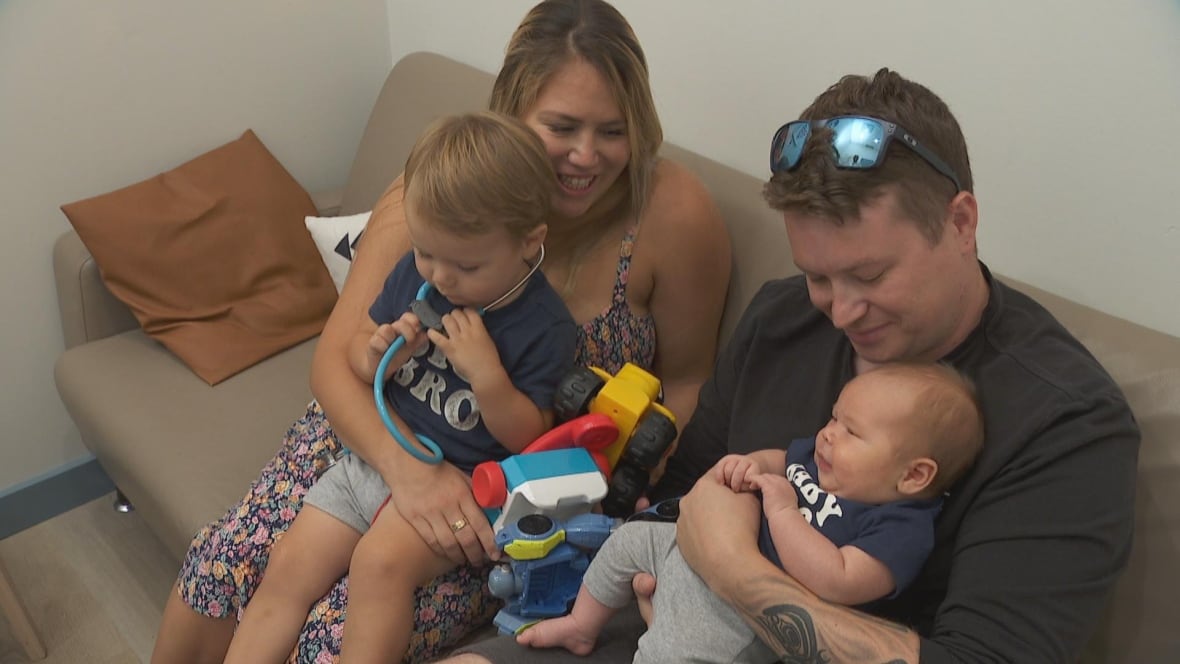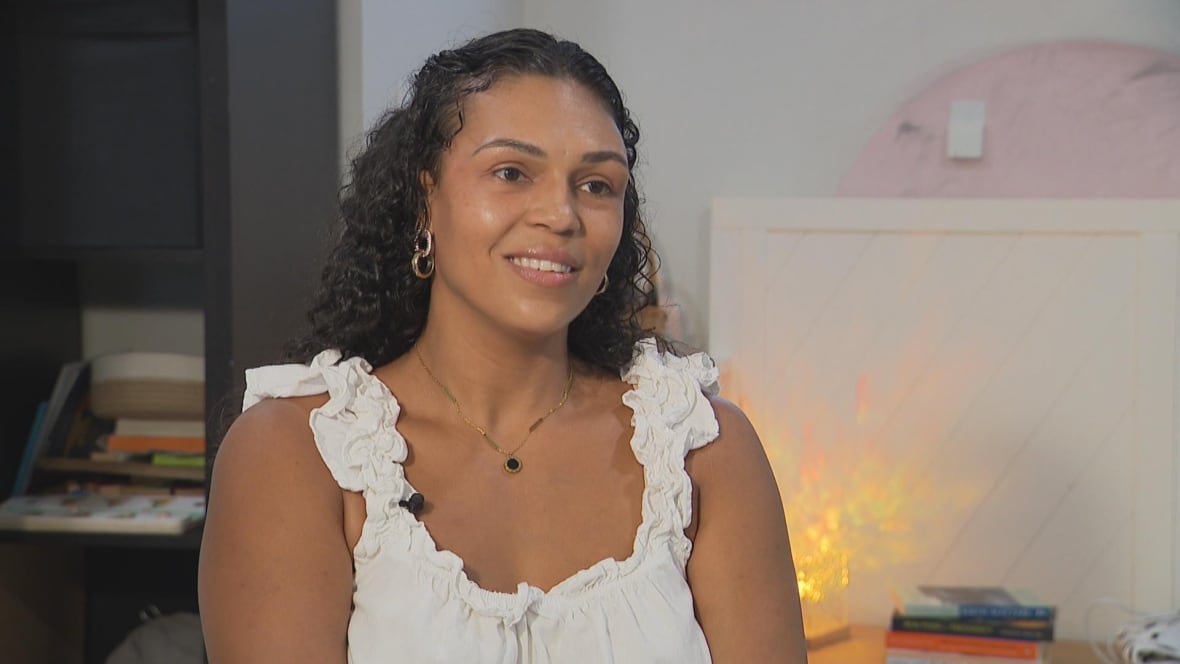How Indigenous midwives and doulas in B.C. are providing cultural care for expectant mothers

In her childhood home on the Capilano Reserve, across Burrard Inlet from Vancouver, Shanille Lewis-Winkles, a member of the Squamish Nation, gave birth to her sons. The first words her children heard were of the Squamish language spoken by her mother.
The decision to give birth at her childhood home was one that Lewis-Winkles says allowed her to include her family and culture.

"We knew before I was pregnant that I didn't want to give birth in the hospital. I wanted to be in the home setting. It felt most comfortable and the perfect environment," she said.
Cultural practices incorporated in home birthsLewis-Winkles is one of a growing number of Indigenous women choosing to give birth at home, as more doulas and midwives offer culturally relevant care and practices, and amid concerns over discrimination in the province's health-care system.
Simone Carriere is a doula based in Surrey, B.C., who says she is often an advocate for her clients who are giving birth in hospitals.
"If they end up getting to the hospital before I arrive, they talk about being talked down to. At times I'm not feeling like their care providers are really culturally informed or being safe with them," Carriere says. "Having the doula present, it does create a form of protection to allow for cultural practices to come in."

Carriere is of Metis and Cree heritage and says for those who choose to give birth at home, doulas and midwives are able to make space for cultural practices that may not be accommodated in typical health-care settings.
"That could be through song or prayers," she said. "Smudging — if that's something that they're interested in. I've got a smokeless smudge spray and we have our regular smudge tools."
More than 3,700 pregnancies funded through doula programIn British Columbia, there are nearly 600 doulas registered to the Doulas for Aboriginal Families Grant Program (DAFGP), with 167 self-identifying as Indigenous. The program provides up to $1,200 in funding for doula support for Indigenous families in B.C. and is offered by the B.C. Association of Friendship Centres, Provincial Health Services Authority and the Ministry of Health.
Linda Jones, program co-ordinator, says since the DAFGP was established in 2013, more Indigenous families are able to access the care they need.
"Part of our program is to make sure that we can increase the capacity in the more rural and remote communities, so families can access care and are more open to the holistic approach to birthing, rather than the medicalized side of birthing," said Jones.
Jones says doulas are also able to help new mothers navigate the postpartum process.
"When the baby's born, you don't just cut off communication with that family. You help promote the continuity of care and you stay involved. You're there providing resources for postpartum care, for mental health care, for physical care, and cultural community care," she said.
Midwives and doulas provide care for pregnant mothers in rural communitiesMoss Gibson is an Indigenous midwife with Huckleberry Midwives and part of Strathcona Midwifery Collective. She was drawn to the profession to be able to provide culturally competent care to members of remote Indigenous communities who have to leave their towns to access medical care.
"We also get referrals from northern remote and evacuee communities that are looking for safe care, or at least representative care here in Vancouver when they're leaving home," Gibson said.
"Our clients will sometimes want to bring birth back to community. So sometimes they'll choose to birth at home. Sometimes that's on reserve and sometimes that's just a home safe environment for them to feel really cared for and comfortable in their space."
For Lewis-Winkles, her children are the fifth generation to be born in her childhood home and she says the experience has been one she hopes to relive again.
"I would do it all over again for the third time; I think it's a great experience. And I think just trusting your body and your instincts is such a big part of it too."
cbc.ca





